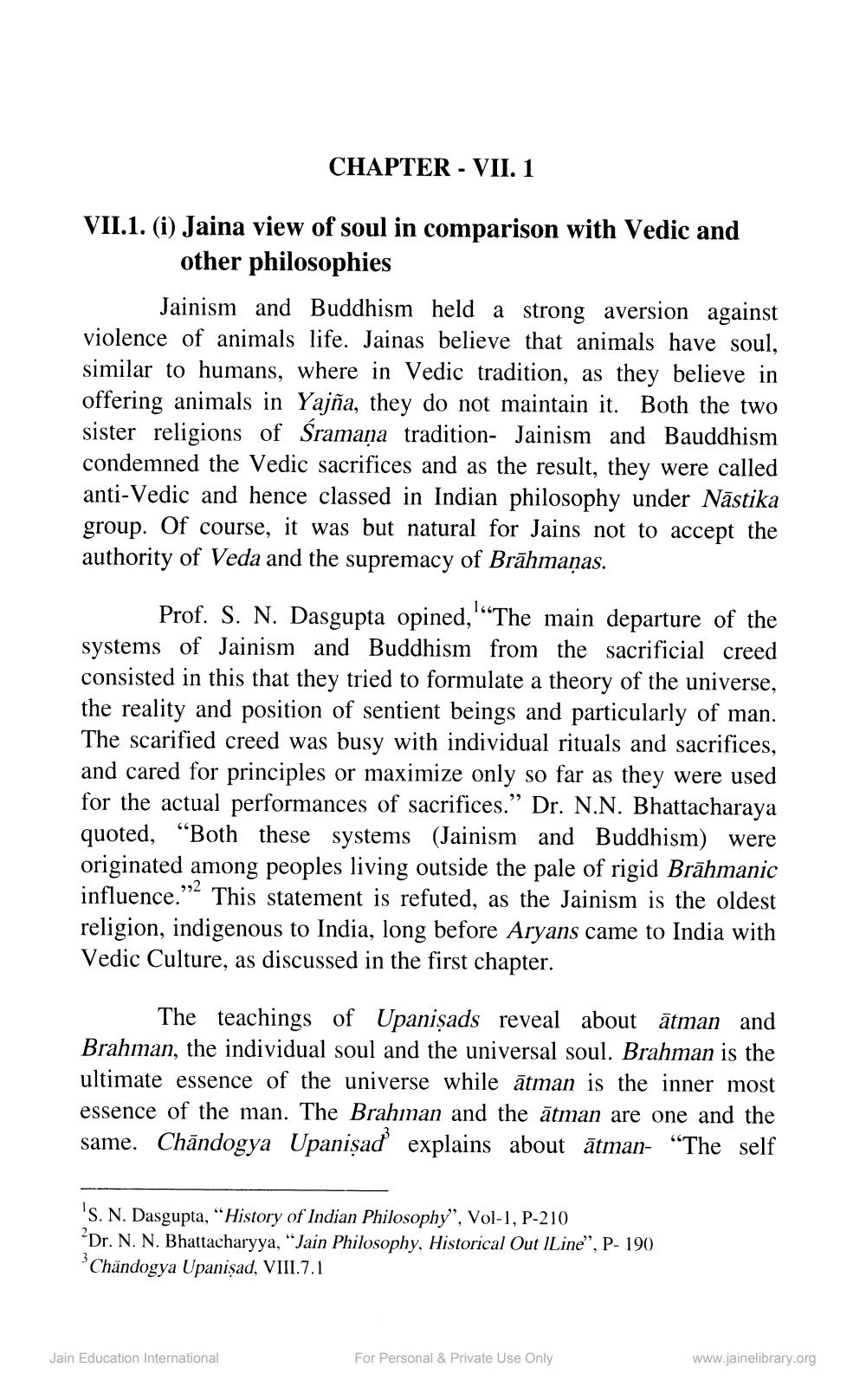________________
CHAPTER - VII. 1
VII.1. (i) Jaina view of soul in comparison with Vedic and
other philosophies
Jainism and Buddhism held a strong aversion against violence of animals life. Jainas believe that animals have soul, similar to humans, where in Vedic tradition, as they believe in offering animals in Yajña, they do not maintain it. Both the two sister religions of Sramaņa tradition- Jainism and Bauddhism condemned the Vedic sacrifices and as the result, they were called anti-Vedic and hence classed in Indian philosophy under Nāstika group. Of course, it was but natural for Jains not to accept the authority of Veda and the supremacy of Brāhmaṇas.
Prof. S. N. Dasgupta opined, '“The main departure of the systems of Jainism and Buddhism from the sacrificial creed consisted in this that they tried to formulate a theory of the universe, the reality and position of sentient beings and particularly of man. The scarified creed was busy with individual rituals and sacrifices, and cared for principles or maximize only so far as they were used for the actual performances of sacrifices.” Dr. N.N. Bhattacharaya quoted, “Both these systems (Jainism and Buddhism) were originated among peoples living outside the pale of rigid Brāhmanic influence.” This statement is refuted, as the Jainism is the oldest religion, indigenous to India, long before Aryans came to India with Vedic Culture, as discussed in the first chapter.
The teachings of Upanişads reveal about ātman and Brahman, the individual soul and the universal soul. Brahman is the ultimate essence of the universe while ātman is the inner most essence of the man. The Brahman and the ātman are one and the same. Chāndogya Upanişad explains about ātman- "The self
'S. N. Dasgupta, “History of Indian Philosophy”, Vol-1, P-210 ?Dr. N. N. Bhattacharyya, “Jain Philosophy, Historical Out Line”, P-190 Chandogya Upanisad, VIII.7.1
Jain Education International
For Personal & Private Use Only
www.jainelibrary.org




